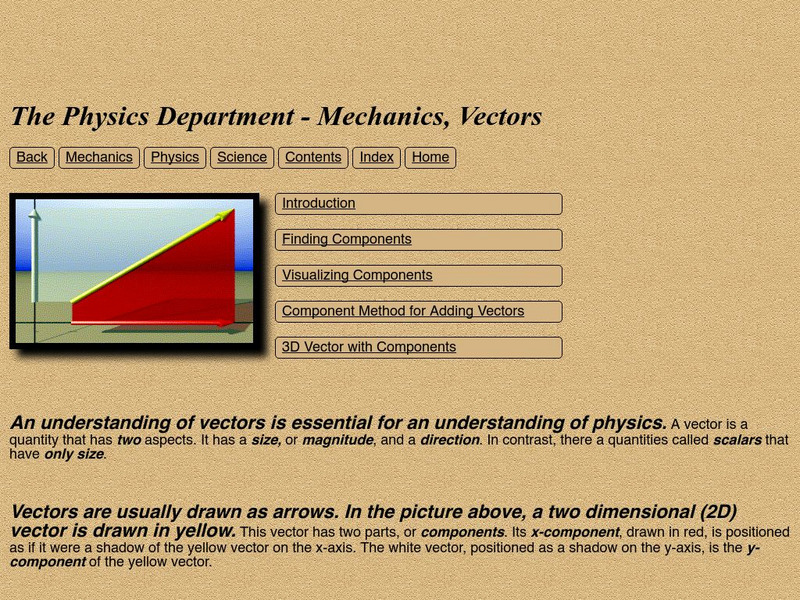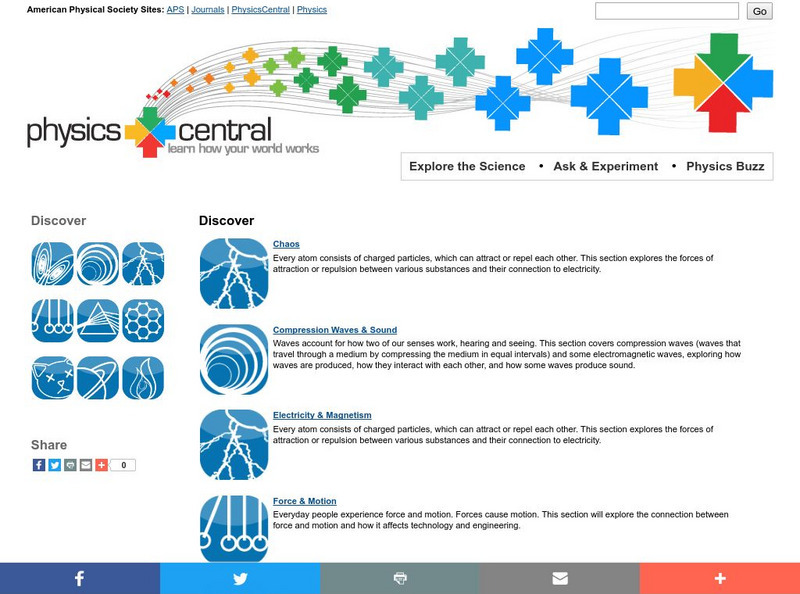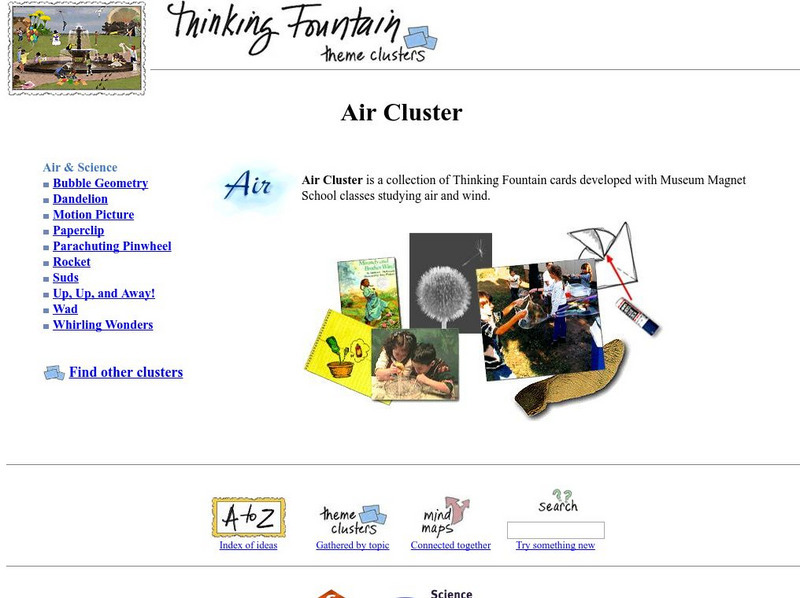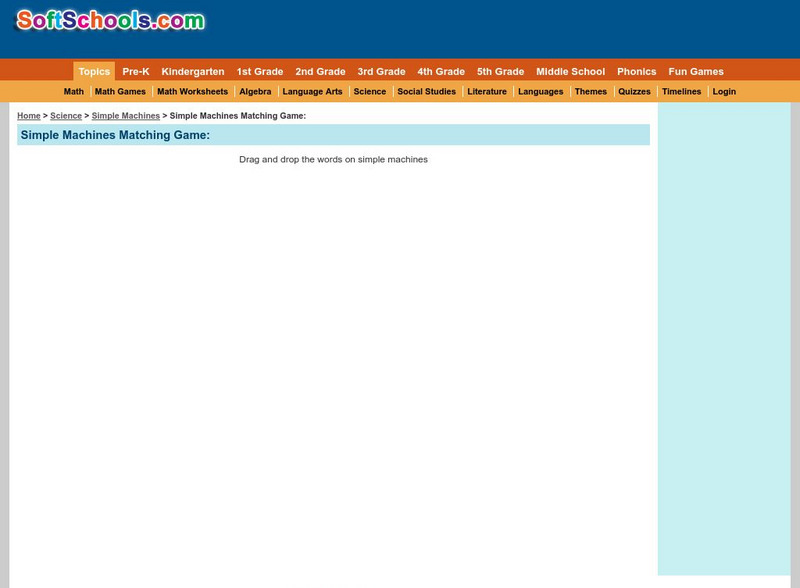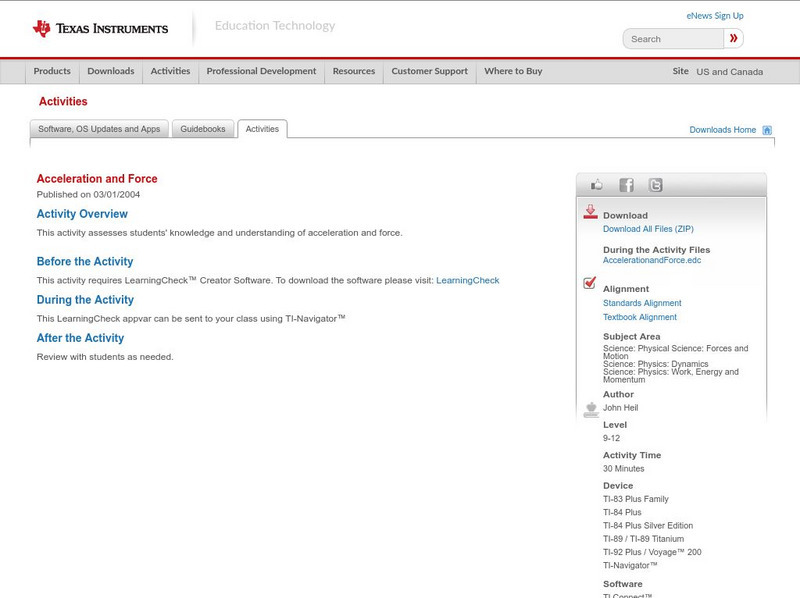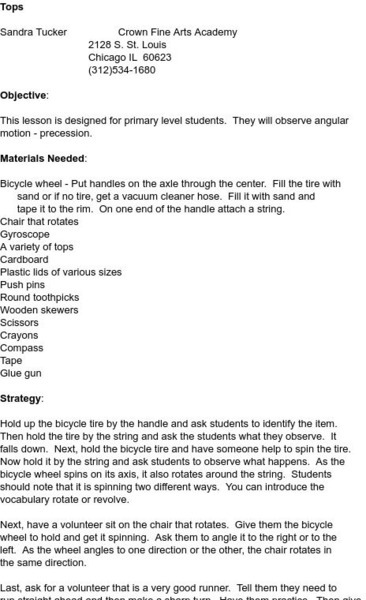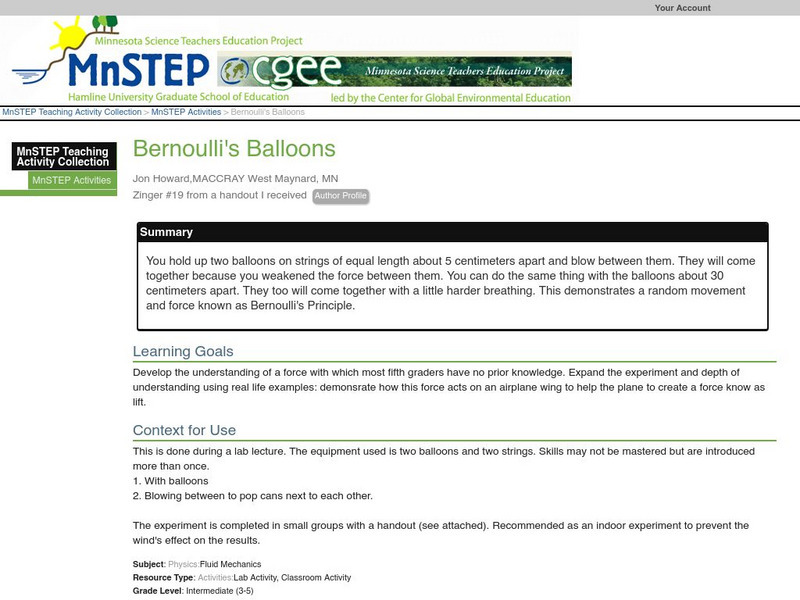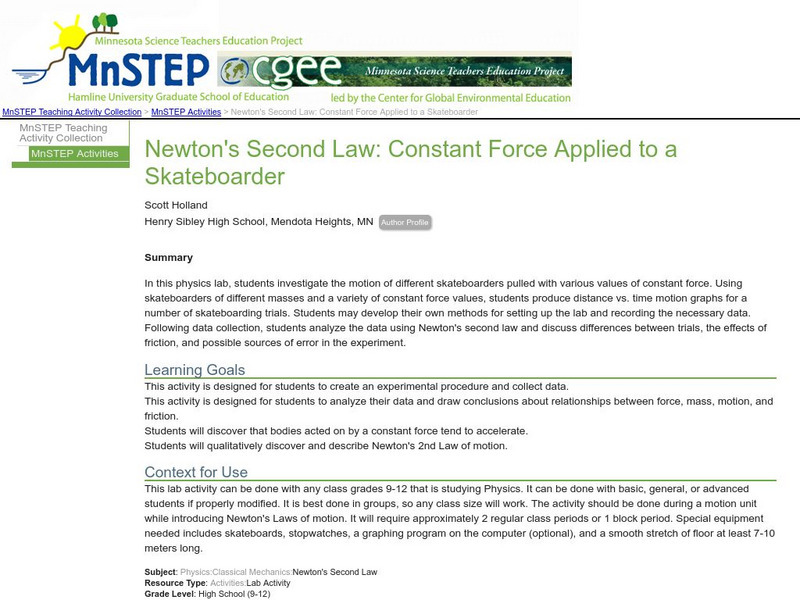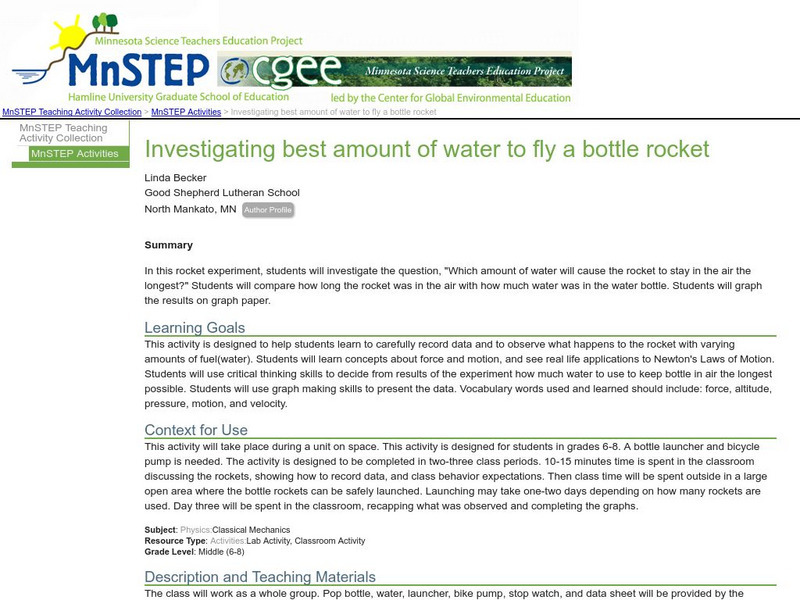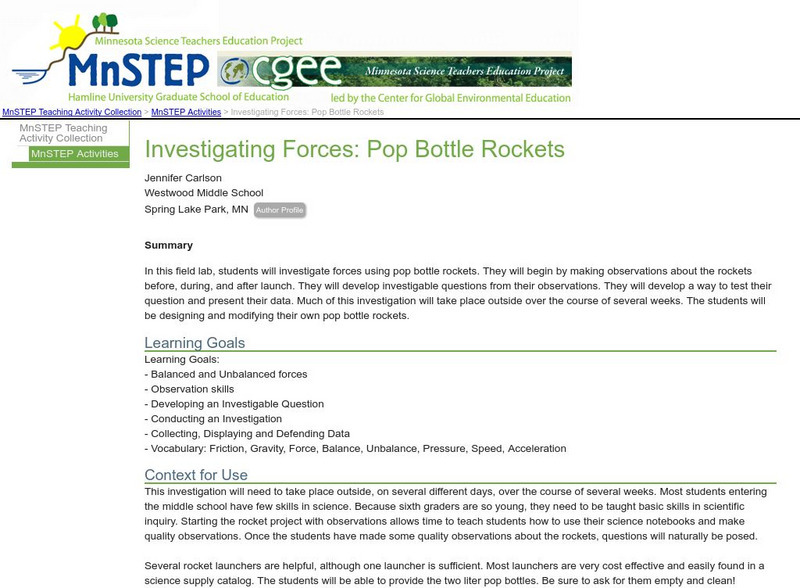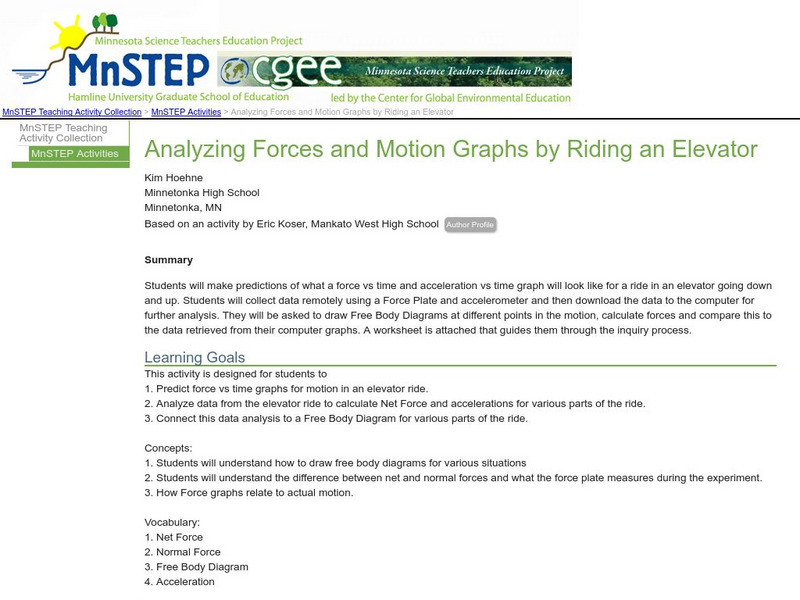Hi, what do you want to do?
Curated OER
Zona Land: Galileo and Inertia
A tutorial with accompanying animations on classical mechanics. Well-illustrated. Good navigation.
Curated OER
Zona Land: Components of a Vector
An interactive Java applet where users can rotate a vector about its tail and view the components of that vector. Magnitude of the components is updated on screen as the vector is dragged.
Curated OER
Zona Land: Mechanics and Vectors
An exceptional tutorial on the topic of vectors that offers many helpful graphics, some of which are interactive.
Physics Central
American Physical Society: Physics Central: Discover Homepage
Link to nine major physics topics and dig deeper into the content. Find out about the work of scientists in each field and see example physical science experiments.
MadSci Network
Mad Scientist Network: How Can a Gyroscope Defy Gravity
Explanation of the seemingly gravity-defying feats of a gyroscope. Focuses on the reason behind its operation. Includes illustrations.
E-learning for Kids
E Learning for Kids: Science: Greece: What Are Pushes and Pulls?
Nikos is cleaning up and organizing in his family's theater. He finds out that different movements need different motions; sometimes a push, and sometimes a pull. Help him figure out which force to use.
University of California
University of California Los Angeles: Force, Work and Power
Describes the definition and relationships between force, work and power. Includes nice drawings to increase conceptual understanding.
Wolfram Research
Wolfram Science World: Surface Tension
The concept of surface tension is explained and the formula used to calculate it is presented. Includes an example of using the equation, and a table of surfaces tensions is given.
Science Museum of Minnesota
Science Museum of Minnesota: Air Cluster
Interesting site with links to activities about wind and air in many forms. Browse the different activities and investigations on the properties of air on the toolbar to the left of the page.
University of Guelph
University of Guelph: Physics Tutorials: Torque and Angular Acceleration
Words and equations are used to explain the relationship between angular acceleration and the torque exerted upon an object. Well-written; great graphics.
TED Talks
Ted: Ted Ed: Brian Greene on String Theory
Physicist Brian Greene explains superstring theory, the idea that minscule strands of energy vibrating in eleven dimensions create every particle and force in the universe. [19:11]
Soft Schools
Soft Schools: Simple Machines
Identify the six simple machines by dragging the correct term, and dropping it onto the associated simple machine.
Texas Instruments
Texas Instruments: Slow Down: Speed Up
In this activity, students' will use a motion detector to observe the effect of speeding up, slowing down, and moving at a constant rate on a Distance versus Time plot.
Texas Instruments
Texas Instruments: Acceleration and Force
This activity assesses students' knowledge and understanding of acceleration and force.
Texas Instruments
Texas Instruments: An Inclined Plane
In this activity, Students can use a Force Sensor to measure the force needed to lift an object and the force needed to pull the same object up an inclined plane. They will also calculate work done and efficiency and make conclusions.
Science and Mathematics Initiative for Learning Enhancement (SMILE)
Smile: Lab Activity: Tops
The Illinois Institute of Technology provides a lab activity on precession and spinning tops. Designed for primary grades, but easily adapted for any level. Includes directions and assessment ideas.
Science and Mathematics Initiative for Learning Enhancement (SMILE)
Smile: Four Air Pressure Labs
Four lab exercises from the Illinois Institute of Technology demonstrating air pressure are given.
Science Education Resource Center at Carleton College
Serc: Bernoulli's Balloons
You hold up two balloons on strings of equal length about 5 centimeters apart and blow between them. They will come together because you weakened the force between them. You can do the same thing with the balloons about 30 centimeters...
Science Education Resource Center at Carleton College
Serc: Newton's Second Law: Constant Force Applied to a Skateboarder
In this lab activity, young scholars will become familiar with Newton's 2nd Law of Motion. By investigating the motion of different skateboarders pulled with a variety of constant force values, they will discover that bodies acted on by...
Science Education Resource Center at Carleton College
Serc: Balanced Forces
In this lesson the learners will learn the scientific definition of force. The students will see different examples of forces on an object and will gain an understanding that there are at least two forces acting on an object at all...
Science Education Resource Center at Carleton College
Serc: Investigating Best Amount of Water to Fly a Bottle Rocket
In this rocket experiment, students will investigate the question, "Which amount of water will cause the rocket to stay in the air the longest?" Students will compare how long the rocket was in the air with how much water was in the...
Science Education Resource Center at Carleton College
Serc: Investigating Forces: Pop Bottle Rockets
In this lab, students will work on scientific inquiry skills: observation, developing questions, conducting an experiment, and collecting data. They will investigate forces using pop bottle rockets that they have designed.
Science Education Resource Center at Carleton College
Serc: Analyzing Forces and Motion Graphs by Riding an Elevator
A high school physics lab on classical mechanics in which students study force versus time and acceleration versus time. Students need access to an elevator to complete the experiments. A lab handout is provided.
Science Education Resource Center at Carleton College
Serc: Marble Stop
In this two-part instructional activity, students will discover that no matter what the shape of the track, the marble will rise to the same vertical height. They will begin to understand the concepts of gravity, motion, and force.







